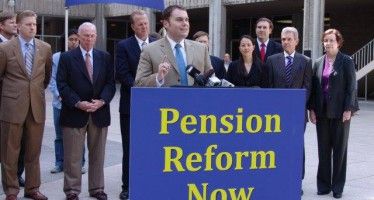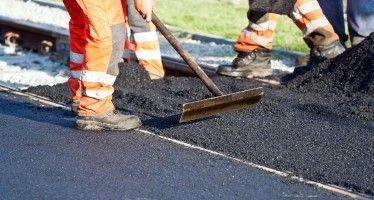Blowing Smoke Against Prop. 19
SEPT. 30, 2010
By JOHN SEILER
Maybe the most controversial, certainly the most aromatic proposition on the November 2 ballot is Proposition 19, which would decriminalize marijuana. Not just for medical uses, but for use by any adult. Local governments would have the primary task of implementing Prop. 19, including collecting taxes for local use. The state could not collect taxes.
The Orange County Register, where I am an editorial writer, recently hosted those for and against Prop. 19. Although not an actual debate, the two sides were interviewed within the span of three hours, providing a point-counterpoint.
Backing Prop. 19 were Judge James P. Gray, a retired superior court judge from Orange County. He long has been involved in drug legalization and other libertarian causes. His new book is, “A Voter’s Handbook: Effective Solutions to America’s Problems.”
He was joined by Hanna Liebman Dershowitz, an attorney in Culver City and a member of the Prop. 19 Legal Committee.
Taking the side of opposition were Dick Ackerman, a lawyer and former Republican leader in the California Senate. And Sandra Hutchens, who just was re-elected as the sheriff of Orange County.
Local smoke
Gray began with an argument for local control: “The beauty of this is the concept of federalism, not just within each state, but each city. Cities are allowed to opt in. The cities are in control. The cities will make the regulations. A private company wouldn’t have a right to sell it without city approval.
“Some of the opposition slaps the face of the cities, saying, ‘This is too complicated for you.’ That is a false concern.”
Ackerman disagreed, “This puts it all on the local governments. That would mean up to 500 different rules. I’m a 100 percent believer in local control. But this throws the state out – except for commercial production.”
Dershowitz made this comparison: “The model used here is the dry county/wet county system. Long-term, as best practices develop [in courts], the state will take a more active role.”
Although not as common as it used to be, a legacy of alcohol Prohibition was that some some counties, mainly in the rural American South and Midwest, banned alcohol; while neighboring counties legalized it.
Workplace highs
A major point of contention was over how Prop. 19 would affect workplaces. “Impaired job performance is the only criterion” by which an employer could judge that an employee has been using marijuana, Hutchens said. “The burden is on the employer to prove impairment. It will be tested in time over labor law. Random testing for marijuana might not be permitted. You would get more rights as a marijuana smoker than a cigarette smoker has.”
Ackerman added that “It’s a failing of our labor laws. The Legislature is anti-business. Those labor laws are not going to change. SEIU is supported it.” SEIU is the Service Employees International Union. “This is not about legalization of marijuana. That’s very misleading. It’s a hit on business. It puts businesses in a bind. It makes pot-smoking a civil right, almost. You can smoke it in the workplace, unless you can show it impairs the worker’s ability to do the job. It would put people in a special class.”
“We’ll see this criticism from the California Chamber of Commerce: nitpicking and exaggerating,” Judge Gray said. He insisted that, for someone to be challenged at work for using marijuana, “It has to affect their job performance. If they smoked it Friday night, by Monday morning there’s no impairment,” so under Prop. 19, the worker could not be challenged in that example.
How to determine impairment? “That’s a problem that will exist whether or not 19 passes,” he said. “The purpose of 19 is to treat marijuana like alcohol.”
Dershowitz insisted, “It does not require employers to control employees’ off-the-job use. Only on-the-job. There are several ways it’s not a problem” in the workplace. “Four sections of the Act address the workplace condition.”
The hard stuff
Another objection to Prop. 19 is that, as Hutchens put it, “The marijuana of today has a much higher THC content than that of the 1960s.” THC is the active hallucinogenic chemical in marijuana.
Gray said, “The cardinal rule of prohibition: always sell the harder stuff. Law enforcement says marijuana is much stronger than in the 1960s. But the law makes no distinction between weaker and stronger marijuana. So you can’t find milder marijuana,” because pushers, facing equal punishment for potent or mild pot, choose the former. “If it were legalized, you wouldn’t automatically use the harder stuff.”
Ackerman contended that marijuana is a “gateway” drug, encouraging young people to try it first, then go on to harder drugs such as methamphetamine and heroin.
Gray said, “Today by our laws we are forcing people up a ladder. If they have any reason to believe they might be tested, then they are pushed to use something else. For example, marijuana stays in the system 30 days, methamphetamine three days.”
He also pointed to Holland, which legalized marijuana, and Portugal, which legalized all drugs, but have not seen pandemics of addiction. Hutchens countered that, “In Holland, they have more drug cartels than before.”
One thing they agreed on was asset forfeitures, by which law enforcement seizes the homes, cars and other property of a person accused of using marijuana or another drug, often even without a trial. Critics, such as the group Forfeiture Endangers American Rights, insist that asset forfeiture is abused by many law-enforcement agencies.
“Marijuana would just be excluded from that,” Ackerman said. Gray agreed, “It would address that indirectly, as Prop. 19 reduces the number of people making money,” and so subject to forfeitures. “Marijuana is the number one cash crop in California; number two is grapes.”
Teen tokers
For at least 40 years, the easiest place to get marijuana has been from a teenager. “It will make it less available for teenagers,” Dershowitz said, by maintaining penalties for selling to teenagers, while lifting them for adults; thus allowing law enforcement to re-direct its enforcement energies. “Now it’s easier than getting alcohol.”
“My concern is youth,” Hutchens countered. “I do not think it sends the right message to our children. We end up paying for it in one way or another.
Roll up for the voters’ decision
For Gray, Prop. 19 is “one of the most important changes of my lifetime – and yours. If and when Prop. 19 passes, it will sweep the nation. The federal government is absolutely agitated.”
“This is not the right proposition. It’s deceptively crafted. It makes a lot of allegations that aren’t true. The initiative allows you to grow marijuana in your yard,” Hutchens said.
“It should be outlawed,” concluded Ackerman. “Alcohol is good, drugs bad. I’m old fashioned.”
John Seiler, an editorial writer with The Orange County Register for 20 years, is a reporter and analyst for CalWatchDog.com. His email: [email protected].
Related Articles
Pensions initiative pulled
The landmark effort to take public pension reform straight to the people of California has been withdrawn from ballot consideration.
Where are the ‘moderate’ Democrats?
Feb. 15, 2013 By John Seiler Now is the time for moderate Democrats to step forward. Controlling every statewide office
Sacramento special session tackles heath care, infrastructure funding, etc.
A series of clashes marked the two special legislative sessions tacked on this summer to address some of California’s more stubborn




